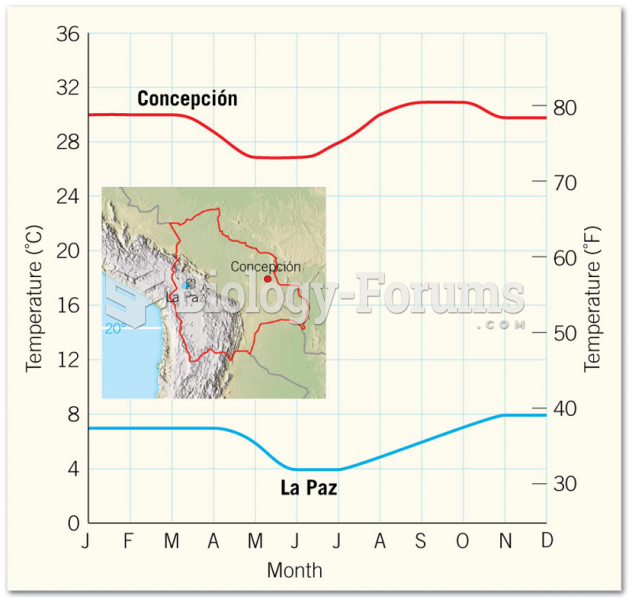|
|
|
The top five reasons that children stay home from school are as follows: colds, stomach flu (gastroenteritis), ear infection (otitis media), pink eye (conjunctivitis), and sore throat.
In 1864, the first barbiturate (barbituric acid) was synthesized.
Illicit drug use costs the United States approximately $181 billion every year.
Earwax has antimicrobial properties that reduce the viability of bacteria and fungus in the human ear.
The use of salicylates dates back 2,500 years to Hippocrates's recommendation of willow bark (from which a salicylate is derived) as an aid to the pains of childbirth. However, overdosage of salicylates can harm body fluids, electrolytes, the CNS, the GI tract, the ears, the lungs, the blood, the liver, and the kidneys and cause coma or death.







